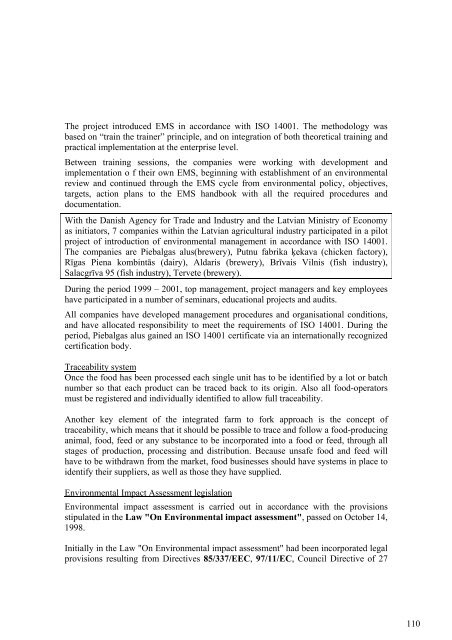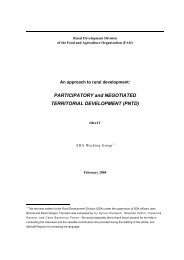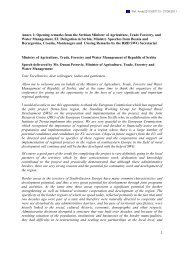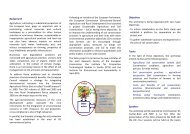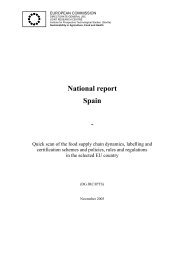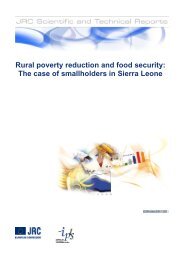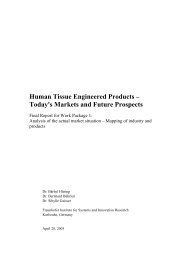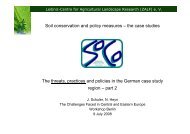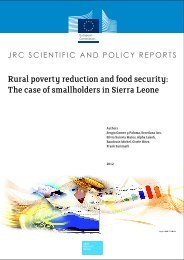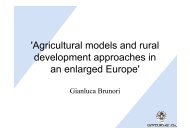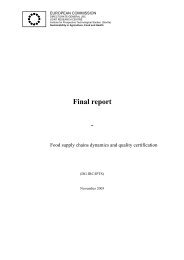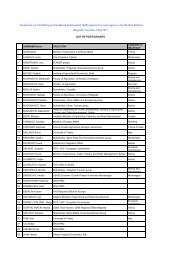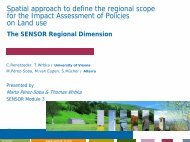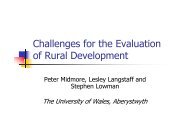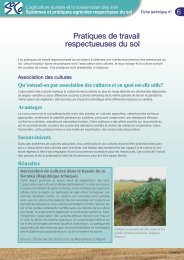(DG JRC/IPTS) - agrilife - Europa
(DG JRC/IPTS) - agrilife - Europa
(DG JRC/IPTS) - agrilife - Europa
Create successful ePaper yourself
Turn your PDF publications into a flip-book with our unique Google optimized e-Paper software.
The project introduced EMS in accordance with ISO 14001. The methodology was<br />
based on “train the trainer” principle, and on integration of both theoretical training and<br />
practical implementation at the enterprise level.<br />
Between training sessions, the companies were working with development and<br />
implementation o f their own EMS, beginning with establishment of an environmental<br />
review and continued through the EMS cycle from environmental policy, objectives,<br />
targets, action plans to the EMS handbook with all the required procedures and<br />
documentation.<br />
With the Danish Agency for Trade and Industry and the Latvian Ministry of Economy<br />
as initiators, 7 companies within the Latvian agricultural industry participated in a pilot<br />
project of introduction of environmental management in accordance with ISO 14001.<br />
The companies are Piebalgas alus(brewery), Putnu fabrika ķekava (chicken factory),<br />
Rīgas Piena kombintās (dairy), Aldaris (brewery), Brīvais Vilnis (fish industry),<br />
Salacgrīva 95 (fish industry), Tervete (brewery).<br />
During the period 1999 – 2001, top management, project managers and key employees<br />
have participated in a number of seminars, educational projects and audits.<br />
All companies have developed management procedures and organisational conditions,<br />
and have allocated responsibility to meet the requirements of ISO 14001. During the<br />
period, Piebalgas alus gained an ISO 14001 certificate via an internationally recognized<br />
certification body.<br />
Traceability system<br />
Once the food has been processed each single unit has to be identified by a lot or batch<br />
number so that each product can be traced back to its origin. Also all food-operators<br />
must be registered and individually identified to allow full traceability.<br />
Another key element of the integrated farm to fork approach is the concept of<br />
traceability, which means that it should be possible to trace and follow a food-producing<br />
animal, food, feed or any substance to be incorporated into a food or feed, through all<br />
stages of production, processing and distribution. Because unsafe food and feed will<br />
have to be withdrawn from the market, food businesses should have systems in place to<br />
identify their suppliers, as well as those they have supplied.<br />
Environmental Impact Assessment legislation<br />
Environmental impact assessment is carried out in accordance with the provisions<br />
stipulated in the Law "On Environmental impact assessment", passed on October 14,<br />
1998.<br />
Initially in the Law "On Environmental impact assessment" had been incorporated legal<br />
provisions resulting from Directives 85/337/EEC, 97/11/EC, Council Directive of 27<br />
110


